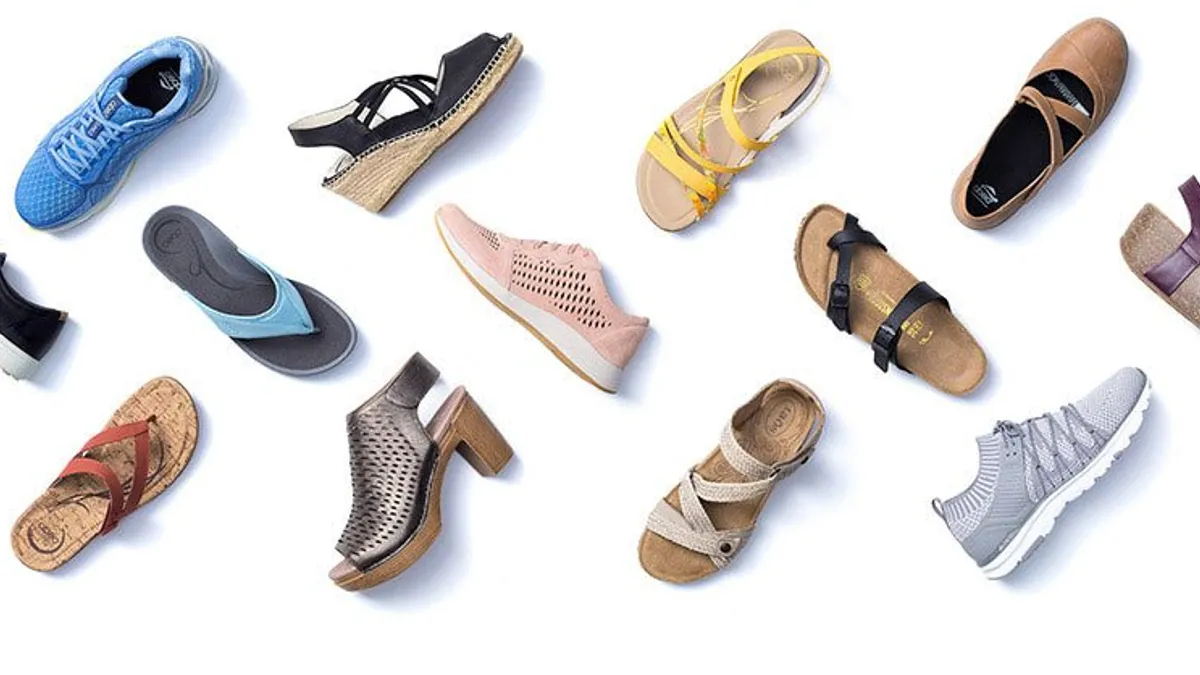Dive Brief:
- A shoe brand called New Movements will launch early this year, with its shoes designed entirely from sustainably sourced materials, Fast Company reported.
- New Movements will construct its shoes from recycled materials. For example, the soles will be a combination of car tires and soles from other shoes, and laces will be made from recycled plastic bottles.
- The company said its Model NM shoes are made ethically in Portugal, "which is considered to have the best shoemakers in the world."
Dive Insight:
A supply chain manager who wears ethically sourced shoes outside of work may be just the person who thinks about ethical sourcing while at work.
Workers practice their passions at home and bring those beliefs into the workplace, and employers often respond to these grassroots efforts with sustainability efforts such as increased recycling, community engagement and charitable work.
We see the foundations of the demand for ethical sourcing in areas like organic and fair trade food ingredients, a reduction in the carbon footprint and the recognition of human rights issues.
Socially conscious and motivated supply chain managers have significant influence in selecting suppliers who ethically source their materials and services.
While it may be a challenge to create a 100% ethical sourcing strategy, broadening the definition of the green supply chain to include a greater number of suppliers of ethical materials may be the first step.
The green supply chain once contained a very narrow range of suppliers, but demand for green products, driven by consumer demand and evolving sourcing strategies, has become mainstream.
Supply chain managers may have to go to great lengths to find suppliers who meet their ethical criteria. And even if these suppliers are located, there may be issues with capacity, pricing or risk. The ethical supplier may just not be right source.
But ethical sourcing doesn't have to be a zero-sum effort. Supplier selection and supplier development efforts can begin to address ethical supply chain issues and over time increase ethical material content. Small efforts, over time, often become trends.













